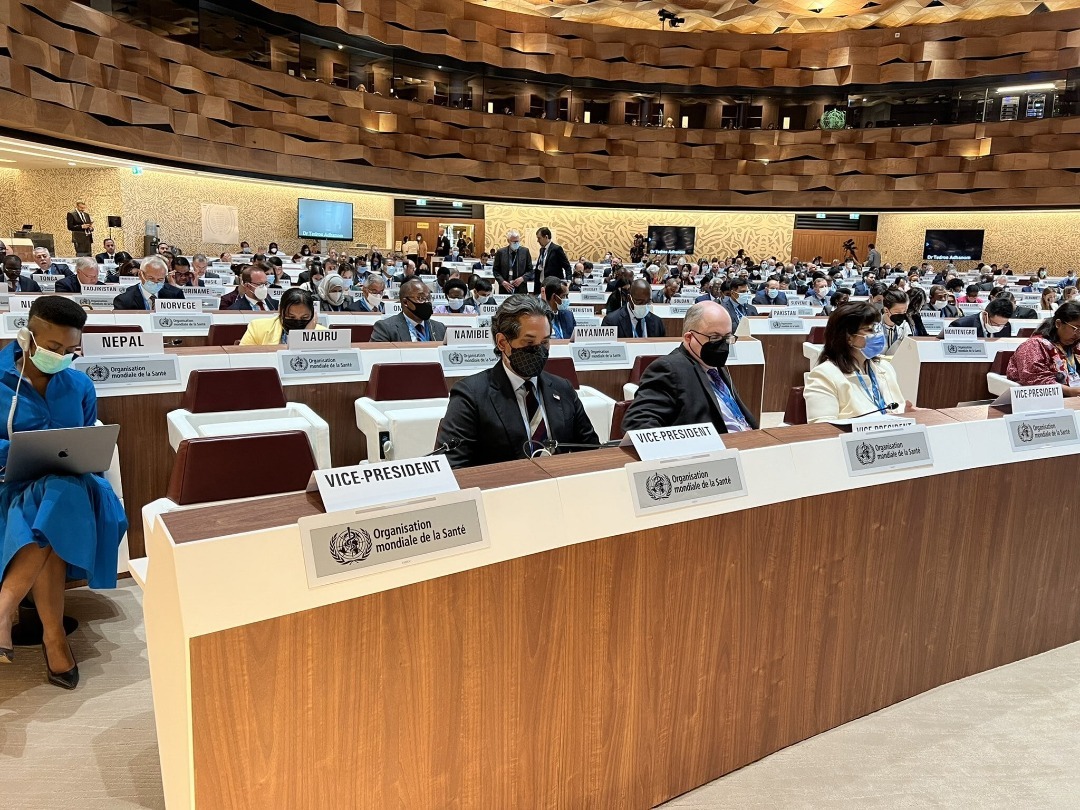KUALA LUMPUR, May 24 – The Malaysian government has agreed to increase funding by 40 per cent to the World Health Organization (WHO) by 2029, amounting to nearly RM20 million.
Health Minister Khairy Jamaluddin yesterday told the 75th session of the World Health Assembly, the WHO’s decision-making body, in Geneva, Switzerland, that Malaysia, as proposed, would progressively increase its current assessed contribution to WHO by 20 per cent in 2024 and 40 per cent in 2029.
“Furthermore, we concur with the working group whereby the Member States and donors need to provide WHO with fully unearmarked voluntary contributions to finance WHO’s base programme segment,” Khairy said in remarks on the sustainable financing of the global United Nations health body.
“This increase must, of course, be followed by better budgetary transparency, fair and equitable allocation and reallocation of resources to fully fund all programme budget outcomes across the three levels of organisations which will address underfunded areas.”
Assessed contributions, or membership dues, are annual payments that must be made by WHO member states as a percentage of the country’s gross domestic product (GDP), approved every two years by the World Health Assembly. Assessed contributions cover less than 20 per cent of WHO’s total budget.
In a May 13 report by the WHO working group on sustainable financing that was tabled in the World Health Assembly, WHO director-general Tedros Adhanom Ghebreyesus urged member countries to consider increasing assessed contributions to cover at least half of the base segment of WHO’s programme budget, as they generally agree that WHO’s current financing model is not fit for purpose or sustainable.
The World Health Assembly agreed to adopt the working group’s recommendations, including targeting a 20 per cent increase in 2024-2025 of assessed contributions assessments for 2022-2023.
Another 40 per cent increase of the 2022-2023 baseline of assessed contributions is targeted for 2028-2029, which would then cover half of WHO’s base budget for 2022-2023.
According to Malaysia’s 2022 statement of account, Malaysia fully paid WHO assessed contributions of US$815,810 and CHF743,203 for this year, amounting to about RM3.6 million and about RM3.4 million respectively, based on the present currency exchange rate, or a total of RM7 million.
Malaysia’s total assessed contributions for 2022-2023 amounts to US$1,631,620 and CHF1,486,406. Based on the present currency exchange rate, this is equivalent to RM7.2 million and RM6.8 million respectively, totalling RM14 million.
A 20 per cent increase by 2024-2025 means that Malaysia would pay WHO about RM16.8 million for that period, while a 40 per cent increase by 2028-2029 translates to funding of about RM19.6 million.
Khairy also said the Malaysian government has agreed to extend the 15-year contract for hosting the WHO’s Global Service Centre in Cyberjaya that is due to expire in December 2022, as an in-kind voluntary contribution from Malaysia to the WHO.
“Lastly Malaysia could not agree more that to increase the financing base, WHO can take a replenishing model arising from the donor mechanism, which considers that the needs of both member states and donors are aligned,” he added.
Voluntary contributions from WHO member countries, which are in addition to assessed contributions, comprise more than three quarters of funding to WHO.
According to the United States’ Kaiser Family Foundation (KFF), WHO’s total funding of US$7.58 billion from 2020 to 2021 comprised 87 per cent voluntary contributions and 13 per cent assessed contributions.
Based on WHO’s accounts, core voluntary contributions – which are flexible and allow the WHO full discretion on how the funds should be used to finance the organisation’s programmes – comprise 4.1 per cent of all voluntary contributions.
The United Kingdom was the biggest core voluntary contributor to WHO from 2020 to 2021 at US$135.13 million.
KFF wrote last May 19 that the United States has historically been one of the biggest funders of WHO, providing between US$200 million and US$600 million every year over the last decade.
President Donald Trump’s administration suspended US funding for WHO in 2020 and sought to withdraw America from membership in the UN body, but current President Joe Biden reversed that decision after taking office last year and restored US funding to WHO.








